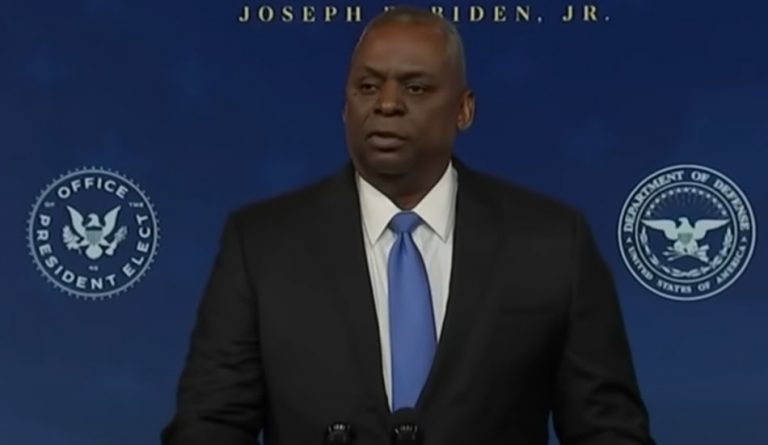Some U.S. military leaders have recently raised concerns about China’s increasing military prowess. However, Defense Secretary Lloyd Austin made it clear at a speech on Dec. 4 that America is not afraid of any threat. He was speaking at the Reagan National Defense Forum in Simi Valley, California.
“America isn’t a country that fears competition… We’re facing a formidable challenge… And we’re going to meet this one with confidence and resolve — not panic and pessimism,” Austin told government officials and defense companies during the speech.
With regard to Taiwan, Austin said that Washington is focused on deterring conflict rather than changing the status quo. The U.S. is looking for open communication with Beijing to ensure that no miscalculations take place. At present, the United States is focused on Ukraine, whose borders are dotted by thousands of Russian troops. America wants to make sure that Ukraine has the assistance it needs to protect its territory from Moscow.
Beijing is said to have tested hypersonic missiles in July and August, a development that reportedly surprised officials at Washington who were not expecting it. After news of these tests broke out, many top military leaders expressed worries.
In an interview with Bloomberg, General Mark Milley, chairman of the Joint Chiefs of Staff, said that the Chinese hypersonic weapons test was “very concerning” given the escalating competition between Beijing and Washington. He also called the tests as “very close” to the Sputnik moment, referring to Russia beating America in launching a satellite to space during the Cold War era.
Success
You are now signed up for our newsletter
Success
Check your email to complete sign up
“As we go forward — over the next 10, 20, 25 years — there’s no question in my mind that the biggest geostrategic challenge to the United States is gonna be China… They’ve developed a military that’s really significant,” Milley stated.
At a Defense Writers Group roundtable in October, General John Hyten, who retired as the Vice Chairman of Joint Chiefs of Staff in November, had called China’s pace of military development as “stunning.” He wants Pentagon to act with urgency, lamenting that the Department of Defense is “unbelievably bureaucratic and slow.”
“The pace they’re moving and the trajectory they’re on will surpass Russia and the United States if we don’t do something to change it. It will happen. So I think we have to do something,” Hyten had said.
During his Dec. 4 speech, Austin asserted that the United States has been “stepping up its efforts” to counter China’s military advancement. Pentagon is pouring in more money into researching and testing new systems which will allow the U.S. to be far more lethal from a distance. Existing weapons systems are being upgraded to make them resilient against cyber and physical attacks. Austin said that the United States has advantages like free minds, free people, and free enterprise that “no autocracy can match.”
Meanwhile, the Biden administration is said to be concerned about a new arms race being triggered due to competition with China. Some are worried that attacks involving command-and-control systems and satellites can spiral off in unimaginable ways. Washington is looking towards boosting talks between the two sides to prevent miscommunication and avoid an accidental war.
“You will see at multiple levels an intensification of the engagement to ensure that there are guardrails around this competition,” Jake Sullivan, Mr. Biden’s national security adviser, said in a recent presentation at the Brookings Institution. The nuclear relationship that Washington has with Moscow is “far more mature” and has a deeper history, he added.














